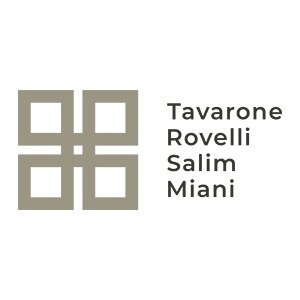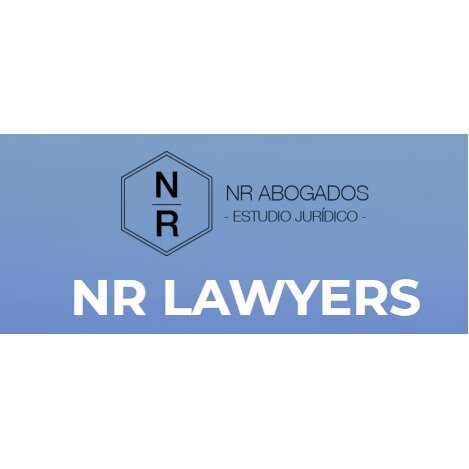Best Employer Lawyers in Argentina
Share your needs with us, get contacted by law firms.
Free. Takes 2 min.
Or refine your search by selecting a city:
List of the best lawyers in Argentina
About Employer Law in Argentina
Employer law in Argentina is a comprehensive framework that governs the relationship between employers and employees. It encompasses a wide range of issues, including employment contracts, wages, work conditions, benefits, employee rights, and termination procedures. The regulatory framework aims to balance the rights and duties of both employers and employees, ensuring fair labor practices and protection against exploitation. Key legislation includes the Labor Contract Law (Ley de Contrato de Trabajo) which serves as the primary source of employment law in the country.
Why You May Need a Lawyer
There are several situations where seeking legal advice could be crucial for employers in Argentina:
- Drafting and reviewing employment contracts to ensure compliance with Argentine labor laws.
- Navigating complex labor disputes or negotiations with employees and unions.
- Understanding legal requirements and obligations related to employee termination and severance pay.
- Adhering to workplace safety, health, and anti-discrimination regulations.
- Managing issues related to collective bargaining agreements.
In these scenarios, an experienced lawyer can provide valuable guidance to help mitigate risks and ensure legal compliance.
Local Laws Overview
Key aspects of employer law in Argentina that are particularly relevant for employers include:
- Labor Contract Law: Establishes employment terms, including working hours, salaries, holiday entitlements, and termination procedures.
- Minimum Wage: Employers must adhere to nationally determined minimum wage rates.
- Unionization: Strong labor union influence with extensive rights for collective bargaining.
- Social Security Contributions: Employers are required to contribute to social security benefits for their employees.
- Termination and Severance: Strict regulations regarding employee termination processes and severance payment obligations.
Frequently Asked Questions
What are the working hours defined by the labor laws in Argentina?
The standard working hours are typically 48 hours per week, with variations depending on the industry and job type.
Are written employment contracts mandatory in Argentina?
Yes, formalizing employment relationships through written contracts is highly recommended to ensure clarity of terms and compliance with local laws.
What is the notice period for terminating an employee?
Notice periods can vary, with a common period being 15 days for employees with less than five years of service. For longer terms, up to two months' notice may be required.
How are overtime hours regulated?
Overtime hours are typically compensated at a higher rate, often 50% above the regular hourly rate on weekdays and double on weekends or public holidays.
Can employees be dismissed without cause?
Dismissing an employee without cause may require the employer to pay severance equivalent to one month of salary per year of service.
What benefits are employers obligated to provide?
Mandatory benefits include unemployment insurance, health insurance, and contributions to pension funds, among others.
Are there specific laws for maternity and paternity leave?
Yes, maternity leave is typically 90 days, while paternity leave is shorter, usually around two days.
What should be included in a collective bargaining agreement?
These agreements often cover wages, working conditions, benefits, disciplinary procedures, and dispute resolution mechanisms.
Is remote work subject to different regulations?
Remote work must follow general labor laws but may require specific contract clauses to address its unique conditions.
How do labor unions influence employer-employee relations?
Labor unions play a significant role in negotiating collective agreements and advocating for worker rights, making union interaction an integral part of Argentine employer law.
Additional Resources
For further assistance, consider reaching out to the following organizations and resources:
- The Ministry of Labor, Employment, and Social Security of Argentina
- The Argentine Chamber of Commerce
- Local labor law firms specializing in employment law
- Workers' unions for industry-specific assistance
- Online legal information portals focusing on Argentine labor law
Next Steps
If you need legal assistance regarding employment laws in Argentina, consider the following steps:
- Identify the specific legal issues or queries you have.
- Consult with a lawyer specializing in labor law to get tailored advice and representation.
- Gather all relevant documentation related to your case, such as contracts and correspondence.
- Discuss your options, including potential litigation, mediation, or negotiation.
- Stay informed about your rights and obligations as an employer to prevent future legal complications.
Lawzana helps you find the best lawyers and law firms in Argentina through a curated and pre-screened list of qualified legal professionals. Our platform offers rankings and detailed profiles of attorneys and law firms, allowing you to compare based on practice areas, including Employer, experience, and client feedback.
Each profile includes a description of the firm's areas of practice, client reviews, team members and partners, year of establishment, spoken languages, office locations, contact information, social media presence, and any published articles or resources. Most firms on our platform speak English and are experienced in both local and international legal matters.
Get a quote from top-rated law firms in Argentina — quickly, securely, and without unnecessary hassle.
Disclaimer:
The information provided on this page is for general informational purposes only and does not constitute legal advice. While we strive to ensure the accuracy and relevance of the content, legal information may change over time, and interpretations of the law can vary. You should always consult with a qualified legal professional for advice specific to your situation.
We disclaim all liability for actions taken or not taken based on the content of this page. If you believe any information is incorrect or outdated, please contact us, and we will review and update it where appropriate.
Browse employer law firms by city in Argentina
Refine your search by selecting a city.

















